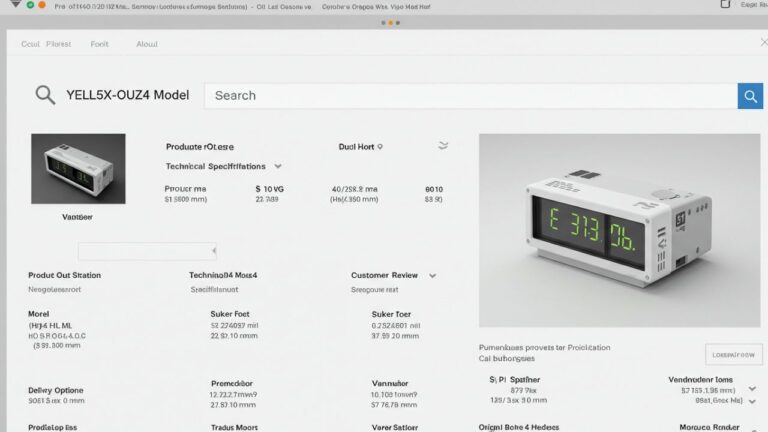
Solar Panel Passage TEAS
Introduction to Solar Panel Passage TEAS
The renewable energy sector continues growing exponentially, with Solar Panel Passage TEAS emerging as the gold standard assessment for professionals entering this dynamic industry. This specialized Test of Essential Academic Skills evaluates candidates’ knowledge across multiple domains critical for solar installation, maintenance, and system design. Professionals seeking certification must demonstrate proficiency in technical concepts, mathematical calculations, reading comprehension, and safety protocols specific to solar energy applications. Furthermore, employers increasingly require successful completion of this examination before considering candidates for technical positions within solar companies nationwide. The comprehensive nature of Solar Panel Passage TEAS ensures that certified professionals possess both theoretical understanding and practical knowledge necessary for excellence in renewable energy careers. Industry leaders developed this standardized assessment to maintain quality standards while meeting increasing demand for qualified solar energy specialists across residential and commercial sectors.
Historical Development of the Assessment
Renewable energy industry leaders first conceptualized Solar Panel Passage TEAS in 2011 as solar installations began accelerating across North America and quality control concerns emerged. The original assessment focused primarily on basic electrical principles and simple installation techniques relevant to first-generation photovoltaic systems. However, subsequent revisions expanded the scope to encompass advanced concepts including energy storage, smart grid integration, and bidirectional power management. Additionally, the test developers collaborated with educational institutions to align content with evolving academic curricula in sustainable energy programs. The assessment underwent major revisions in 2017, 2020, and 2023 to incorporate emerging technologies and updated safety regulations affecting solar installations. Furthermore, feedback from certified professionals and industry employers continuously shapes question development to ensure relevance to actual field conditions. This evolutionary approach maintains the examination’s position as the most respected credential for solar energy professionals seeking career advancement or initial certification.
Core Components of the Assessment
Solar Panel Passage TEAS consists of four distinct sections, each measuring critical competencies solar professionals need for successful careers in renewable energy installation and maintenance. The Reading section evaluates comprehension of technical manuals, regulatory documents, and installation instructions that technicians encounter regularly in field situations. Additionally, the Mathematics component tests abilities to calculate system requirements, voltage drops, energy production estimates, and financial return projections. The Scientific Reasoning section examines understanding of photovoltaic principles, semiconductor physics, electrical theory, and environmental factors affecting solar performance. Furthermore, the Technical Skills Assessment incorporates practical questions regarding proper installation techniques, troubleshooting methodologies, and safety protocols specific to solar applications. Test administrators carefully weight each section according to industry feedback regarding skills most crucial for entry-level positions in solar energy fields.
Reading Comprehension Section Analysis
The Reading section challenges test-takers to demonstrate understanding of complex texts including manufacturer specifications, building codes, and interconnection agreements common in solar projects. Questions frequently require identifying critical information within dense technical passages describing installation requirements or system performance characteristics. Additionally, candidates must interpret diagrams, schematics, and visual information presented alongside written instructions as commonly encountered in actual project documentation. Test developers incorporate authentic materials from solar equipment manufacturers to ensure questions reflect real-world documentation encountered in the field. Furthermore, this section often includes regulatory excerpts requiring careful analysis of compliance requirements affecting solar installations across different jurisdictions. Successful candidates demonstrate ability to extract essential information, follow multi-step instructions, and identify implicit requirements not directly stated but essential for project success.
Mathematical Components and Calculations
The Mathematics section evaluates computational skills directly applicable to solar energy system design, requiring proficiency without calculator assistance for most questions. Candidates must calculate system production estimates using solar irradiance data, panel specifications, and geographical variables affecting energy harvest throughout seasonal changes. Additionally, questions cover electrical calculations including sizing conductors, determining voltage drop across specified distances, and calculating maximum circuit capacities under various conditions. Financial mathematics appears throughout this section, testing ability to determine payback periods, return on investment, and incentive calculations critical for customer proposals. Furthermore, geometry and trigonometry questions evaluate skills necessary for roof layout, array spacing, and shadow analysis essential for optimal system design. Strong performance in this section demonstrates the quantitative reasoning capabilities necessary for successful system design and customer consultation.
Scientific Principles Assessment
The Scientific Reasoning section explores fundamental principles underlying photovoltaic technology, testing conceptual understanding beyond mere memorization of facts or procedures. Questions investigate understanding of semiconductor physics, photovoltaic effect mechanisms, and factors affecting conversion efficiency under various environmental conditions. Additionally, candidates must demonstrate knowledge of electrical principles including Ohm’s Law, power calculations, and series/parallel circuit behavior specific to solar array configurations. The assessment covers thermal characteristics affecting module performance, including temperature coefficients and heat dissipation considerations for rooftop installations. Furthermore, questions address weather impacts, seasonal variations, and atmospheric conditions that solar professionals must consider during system design and production estimates. This comprehensive scientific foundation ensures certified individuals understand why specific installation practices matter rather than simply following procedures without conceptual understanding.
Technical Skills Evaluation
The Technical Skills section presents scenarios requiring application of knowledge to realistic installation and maintenance situations encountered by working solar professionals. Questions evaluate proper mounting techniques for different roof types, including appropriate attachment methods, flashing integration, and waterproofing considerations for long-term system integrity. Additionally, this section covers electrical wiring configuration, grounding methodologies, and interconnection requirements complying with National Electrical Code provisions specific to photovoltaic installations. Troubleshooting scenarios require identifying potential causes of underperformance based on described symptoms, meter readings, and monitoring data typical of actual service calls. Furthermore, candidates must demonstrate understanding of personal protective equipment requirements, fall protection protocols, and electrical safety procedures for various installation and maintenance tasks. This practical assessment ensures certified individuals possess job-ready skills immediately applicable in real-world solar projects.
Preparation Strategies for Success
Effective preparation for Solar Panel Passage TEAS requires a strategic approach addressing both content knowledge and test-taking techniques specific to this specialized assessment. Successful candidates typically begin preparation at least three months before their scheduled examination date, creating structured study schedules covering all content areas. Industry professionals recommend combining theoretical study with hands-on practice whenever possible to reinforce concepts through practical application of principles. Additionally, practice tests provide crucial familiarity with question formats, time constraints, and the digital testing interface used during the actual examination. Study groups offer valuable perspectives and alternative explanations that often clarify difficult concepts through peer discussion and shared understanding. Furthermore, specialized preparation courses provide structured curriculum specifically targeting knowledge gaps identified in diagnostic assessments taken early in the preparation process. This comprehensive approach builds both confidence and competence necessary for achieving certification on the first attempt.
Common Challenges and How to Overcome Them
Most candidates encounter specific challenges when preparing for Solar Panel Passage TEAS, though awareness of these obstacles allows development of effective strategies to overcome them. The mathematics section frequently presents difficulties for test-takers who have been away from formal education for extended periods and need formula refreshers. Additionally, many candidates struggle with the volume of scientific terminology and principles requiring memorization, particularly semiconductor physics concepts underlying photovoltaic operation. Time management during the examination creates pressure for many test-takers who must pace themselves carefully to complete all sections without rushing through complex questions. Furthermore, candidates sometimes underestimate the reading comprehension requirements, assuming technical knowledge alone will suffice without strong analytical reading skills. Strategic preparation addressing these common challenges includes focused remediation on weak areas, timed practice sessions, and comprehensive review of fundamental principles across all test domains.
Testing Environment and Procedures
Understanding the examination environment helps candidates perform optimally during Solar Panel Passage TEAS by eliminating uncertainties that might otherwise create unnecessary anxiety. Test administrators conduct the examination in secured computer labs with standardized conditions ensuring fairness and result validity across all testing locations. Candidates must present government-issued photo identification matching their registration information before entering the testing area for identity verification purposes. Additionally, strict protocols prohibit bringing reference materials, electronic devices, or personal items into the testing room beyond approved identification documents. The computer-based testing platform includes an orientation tutorial allowing familiarization with the interface before the timed assessment begins. Furthermore, proctors monitor the testing environment continuously to maintain security and address any technical issues that might arise during the examination. Understanding these procedural elements helps candidates focus entirely on demonstrating their knowledge rather than worrying about unfamiliar testing conditions.
Scoring System and Certification Levels
The Solar Panel Passage TEAS utilizes a sophisticated scoring system that evaluates performance across multiple dimensions beyond simple correct/incorrect tallies common in less advanced assessments. Each section receives independent scoring with minimum competency thresholds that candidates must meet in addition to achieving satisfactory overall performance. Additionally, certain critical safety questions carry greater weight in final score calculations, reflecting their importance for professional practice in the field. The certification system includes three distinct achievement levels—Standard, Advanced, and Expert—based on score ranges reflecting increasing mastery of essential knowledge. Furthermore, score reports provide detailed performance analysis across subcategories, helping candidates identify specific improvement areas if retesting becomes necessary. The certifying body maintains rigorous statistical analysis of test results to ensure consistency, fairness, and appropriate difficulty calibration across different examination versions. This comprehensive approach ensures employers can rely on certification levels when making hiring decisions for solar energy positions.
Industry Recognition and Career Impact
Successful completion of Solar Panel Passage TEAS significantly impacts career opportunities within the rapidly expanding renewable energy sector across multiple position types. Leading solar installation companies frequently require certification for technical roles, using achievement levels to determine appropriate position placement and compensation packages. Additionally, many jurisdictions incorporate this certification into licensing requirements for contractors who perform solar installations without direct supervision. Government renewable energy programs increasingly specify certification as a prerequisite for approved vendor listings eligible for public project participation. Furthermore, certified professionals typically command salary premiums averaging 18-27% above non-certified counterparts in identical roles according to industry compensation surveys. Many professionals report that certification provides credibility with customers who recognize the credential as evidence of competence and professional commitment. These tangible benefits make certification an essential investment for serious solar energy professionals seeking career advancement and stability.
Continuing Education Requirements
The certification requires ongoing professional development to maintain validity, reflecting the rapidly evolving nature of solar technology and installation best practices. Certified professionals must complete 20 hours of approved continuing education annually, covering technical updates, safety protocols, and emerging technologies relevant to solar energy systems. Additionally, specific coursework addressing code revisions becomes mandatory whenever the National Electrical Code updates sections pertaining to photovoltaic installations, typically every three years. Many employers support this continuing education through sponsored training programs, conference attendance, and manufacturer-provided technical updates covering their specific equipment lines. Furthermore, the certifying body offers webinars, online courses, and regional workshops that satisfy requirements while providing networking opportunities with fellow solar professionals. This continuing education mandate ensures certified individuals remain current with industry developments rather than allowing knowledge to stagnate after initial certification.
Future Trends and Assessment Evolution
Industry experts anticipate significant evolution of Solar Panel Passage TEAS content over the coming decade as renewable energy technologies continue advancing rapidly. Integration of energy storage systems will likely expand within test content, reflecting increasing deployment of battery systems alongside traditional photovoltaic installations. Additionally, smart home integration, load management technologies, and grid services capabilities will probably receive greater emphasis in future test versions. Building-integrated photovoltaics represents another emerging area expected to appear more prominently as these products gain market share in architectural applications. Furthermore, experts predict increased focus on commercial and industrial-scale systems as these market segments continue growing alongside the well-established residential sector. The assessment will undoubtedly incorporate hydrogen production and storage technologies as these solutions mature within renewable energy ecosystems. These evolutionary changes ensure certification remains relevant to actual industry practices rather than becoming outdated as technology advances.
Regional Variations and Requirements
While Solar Panel Passage TEAS provides nationally recognized certification, various regions have implemented additional requirements reflecting local conditions and regulatory environments. Coastal areas typically include supplemental questions regarding saltwater corrosion prevention, hurricane-resistant mounting systems, and waterproofing techniques specific to high-precipitation environments. Additionally, northern regions emphasize snow load calculations, cold weather performance factors, and seasonal production variations not as relevant in southern locations. Some jurisdictions require jurisdiction-specific code supplements addressing unique local requirements beyond national standards covered in the core examination. Furthermore, certain states have implemented specialized endorsements addressing specific installation types including ground-mount arrays, tracking systems, or building-integrated photovoltaics requiring separate qualification. Understanding these regional variations helps professionals prepare appropriately for working in specific geographic markets where additional knowledge may prove necessary beyond core certification requirements. Many employers value candidates familiar with local conditions specific to their service territories.
Test Preparation Resources Review
Numerous preparation resources exist for Solar Panel Passage TEAS, though quality varies significantly, making careful selection crucial for effective examination preparation. The official study guide published by the certifying organization provides the most authoritative content aligned directly with current test specifications and example questions. Additionally, several third-party publishers offer comprehensive preparation manuals combining content review, practice questions, and test-taking strategies specific to this assessment. Online learning platforms have developed specialized courses featuring video instruction, interactive quizzes, and simulated test experiences replicating actual examination conditions. Furthermore, professional associations frequently conduct preparation workshops combining instructor-led review with peer discussion and hands-on components reinforcing theoretical concepts. Mobile applications offer convenient practice opportunities during spare moments, though these should supplement rather than replace more comprehensive study resources. The most successful candidates typically utilize multiple complementary resources addressing different learning styles and reinforcing critical concepts through varied approaches.
Success Stories and Expert Advice
Professionals who achieved high scores on Solar Panel Passage TEAS consistently emphasize several key strategies that contributed significantly to their successful certification outcomes. Most high-performers created detailed study schedules allocating specific time blocks to different content areas, ensuring comprehensive coverage without overemphasizing familiar topics at the expense of challenging ones. Additionally, successful candidates frequently mention the value of teaching concepts to others, finding that explaining material solidified their understanding while revealing knowledge gaps requiring additional review. Many recommend hand-drawing system diagrams and writing explanations without reference materials to confirm genuine understanding rather than recognition-based familiarity. Furthermore, nearly all top performers emphasize the importance of realistic practice tests taken under timed conditions mimicking actual examination parameters. Industry veterans advise maintaining perspective by remembering the assessment evaluates practical knowledge needed for actual field work rather than abstract concepts disconnected from professional practice.
Summary: Leveraging Certification for Career Growth
Solar Panel Passage TEAS certification represents much more than simply passing an examination—it provides verified evidence of competence valuable throughout an entire renewable energy career. Certified professionals should leverage their achievement by highlighting it prominently on resumes, professional profiles, and business credentials visible to potential employers and clients. Additionally, many successful practitioners join professional associations where certification facilitates networking with industry leaders and identifies them as serious professionals committed to excellence. The knowledge gained through preparation serves practical purposes beyond certification itself, improving job performance and technical confidence in daily work situations. Furthermore, the discipline required for successful preparation demonstrates valuable personal qualities including persistence, systematic thinking, and commitment to professional standards highly valued in advanced positions. As the renewable energy sector continues its remarkable growth trajectory, Solar Panel Passage TEAS certification will remain a valuable credential opening doors to expanded opportunities throughout this dynamic industry.







